The Creator trailer breakdown: director Gareth Edwards on nuclear war, AI, religion, fatherhood, and a robot carrying bananas on a moped…
EXCLUSIVE: The director of The Creator breaks down the brand-new trailer’s biggest talking points
It’s been a long seven-year wait for a new Gareth Edwards movie. Back in 2016, the British director behind Monsters and Godzilla set the bar for all Star Wars films this side of the original trilogy – Rogue One landed as straight and true as Luke’s torpedo shot into the Death Star’s thermal exhaust port.
But now he’s back back with The Creator – which appears on the cover of the new issue of Total Film magazine. Edwards’ fourth film is an original IP science-fiction blockbuster that bursts with scale, spectacle, and set-pieces… and also soul. Impressively, while all-out war is being waged between humans and AI in the future, the movie is also locked and loaded with layered characterisation, profound, head-scratching ideas, and lived-in, authentic environments.
The core concept? Ex-special forces agent Joshua (John David Washington) must complete a mission to secure some new-fangled AI tech that could otherwise bring about the extinction of humankind. But said tech turns out to be a young child, Alphie (newcomer Madeleine Yuna Voyles), and Joshua begins to question his objective as he travels with her, forming a bond.
Total Film sits down with Edwards to answer all the whens, wheres, whos, hows, and whys you’ll be desperate to ask after watching the incredible trailer…
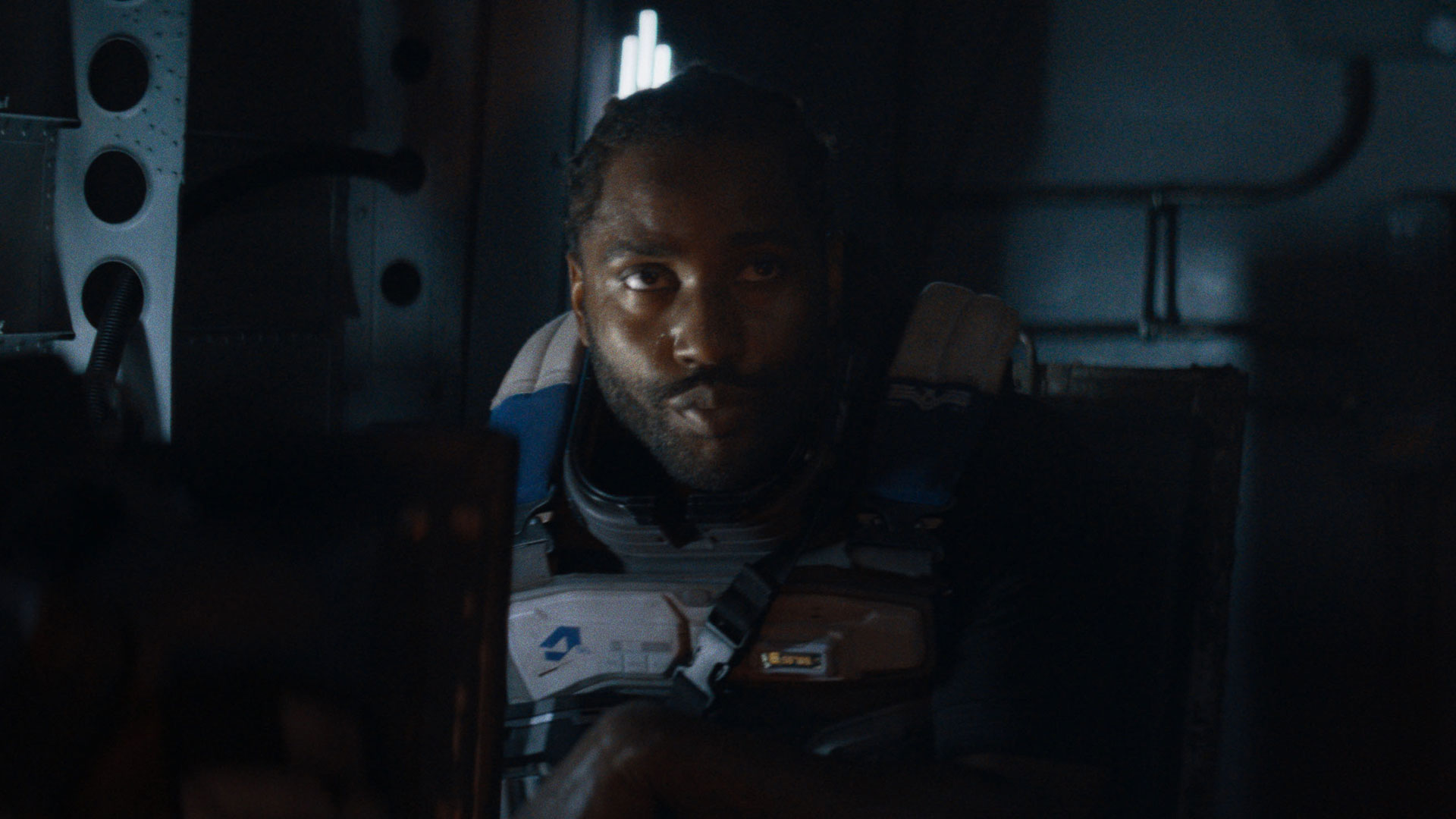
Total Film: The trailer begins with a nuclear detonation in Los Angeles, with the voiceover telling us that this happened 10 years ago. So, what year are we in?
Gareth Edwards: The movie begins with a prologue showing the events that have led to the beginning of this film. The nuclear bomb – the catastrophe that caused the West to reject AI – was in 2055. And then, ‘10 years ago today’… so, that would make it 2065. And the prologue is five years earlier. So, basically, the film begins in 2070.
And Gemma Chan’s character, Maya, has been living with the AI?
Sign up for the Total Film Newsletter
Bringing all the latest movie news, features, and reviews to your inbox
Yeah. She lives in what we call New Asia, which is a melting pot of countries through the war against the West. The borders have dissolved. So, she’s grown up during that conflict. Essentially, AI can’t have children, and this war has created a lot of orphans. Because some of [the AI] in the past were created as nanny robots and things, they tend to gravitate to children, so they raise them. There are lots of communities in the film where there might be a family of a couple of robots and a few kids.
So, the West has renounced AI but New Asia has continued to go down that path?
Yeah, they carried on developing things until they got incredibly advanced, to humanlike level. In our movie, all the AI is very clear. You know who is AI and who isn’t. There are no tricks, like a revelation that someone actually turns out to be AI. It’s not that kind of film. You know straight away when someone is or isn’t, and it’s mainly through the mech, and the hole in the side [points to temple], through the head. I wanted it to feel like the classic “evolution of man” image, from ape to Neanderthal to homo sapiens. So, I wanted the evolution of robotics to go from quite boxy – you know, Sony Walkman-style – all the way up to, with the exception of the mech, completely human-looking.
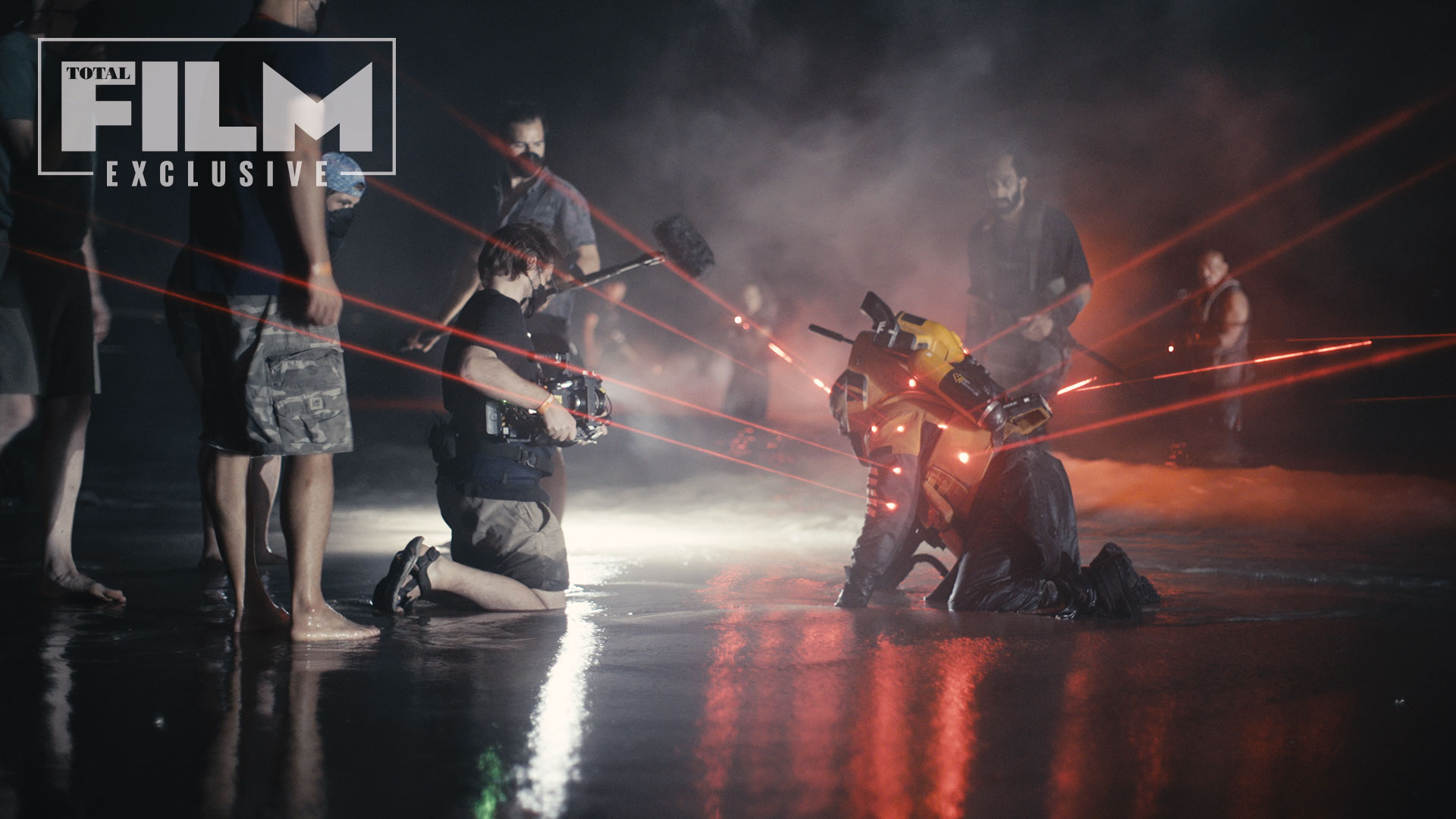
John David Washington’s ex-special forces agent Joshua, has to go on a mission to secure the ultimate AI weapon, which turns out to be a child…
I feel like that’s when the movie turns away from conventional AI films. It takes a left turn at that point. I just like the idea, like we’re struggling with now, of: is AI a good or a bad thing? Should we be embracing it? Should we be controlling it or rejecting it? What happens when it’s potentially sentient enough to have its own opinion on whether we control it or not, whether we get rid of it, turn it off, destroy it? And also, I like the imagery of [Japanese Manga and film series] Lone Wolf And Cub. This idea of an old, jaded warrior, and this very innocent little kid. I just loved the idea of a science-fiction take on that. The Creator is the story of a reluctant father. I guess, maybe, because of the place I’m at in my life. I haven’t got kids. It’s something I always put off. But instincts kick in. All my friends that have kids tell me: ‘This is probably the thing that will fix you, Gareth – if you were to raise a child.’
So, looking after this AI child fixes Joshua?
He calls her Alphie because her code name is Alpha Omega. She makes him question what he’s thinking, for sure. I like it when characters have a lot of real estate to evolve. But the whole movie… My favourite kind of science-fiction is when really difficult questions are raised that don’t have easy answers. I hope the film doesn’t feel that black-and-white. You spend a lot of the movie unsure as to whether AI is a good or a bad thing, and you see both sides of the coin.
We also meet Ken Watanabe’s Harun in the trailer. He’s a ‘simulant’. How does he fit into the story?
Harun is on the side of what you might call the insurgency – the AI that is fighting back against the West, in the guerrilla warfare that’s going on in the farmlands of New Asia. Harun has helped raise Maya. So, he’s kind of a father figure to Gemma Chan’s character.
Who is the Creator?
That’s what they’re trying to find out. They don’t know the identity of the Creator. It’s basically the person who created advanced AI. The AI worship this person as a god. America is trying to kill this person and take them out of the equation, and that hopefully will stop the war.
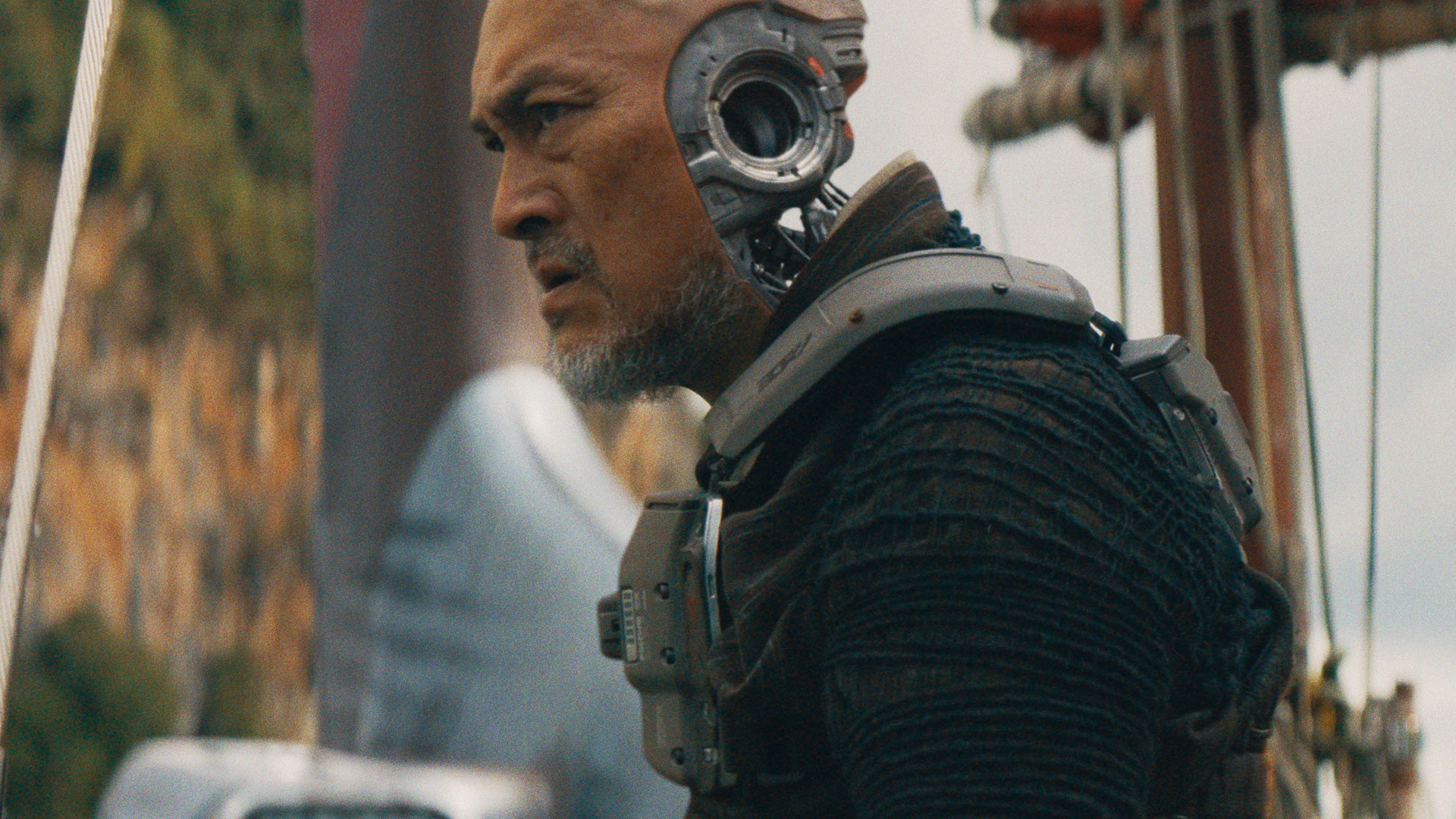
You mention ‘god’. Does spirituality and religion play a part in this? In the trailer, Alphie asks Joshua, ‘are you going to heaven?’
There are a bunch of concepts and ideas that used to be the sole realm of religion and spirituality, that now, because of the way AI is heading, are going more into the reality of these advancements in science. For instance, reincarnation is alluded to in our film, the idea that you can essentially copy and paste yourself. There’s a phrase from a company in the movie where they want humans to donate their likeness, which is basically getting yourself copied, so they can print versions of you as AI. People might pay their way through college or whatever by donating their image and their brain scan so they can print these AI copies. But the idea of reincarnation and life after death, these are all things that the technology in our movie can kind of do a little bit. Rather than it being separate worlds between technology and religion, especially in Asia where I find that there’s a much more interesting melting pot of the ancient past, and the advanced technological future. Wherever you go in Asia, there’s a temple, whether it be Buddhism or Hinduism. Spirituality is everywhere.
Didn’t you come up with The Creator while travelling yourself?
Obviously the way my brain works is that when I went travelling, I would just see science-fiction versions of everything I’m looking at. You’re sat in Angkor Wat, these Buddhist monks walk through, and you just think to yourself, 'imagine if they were robots'. It becomes an ultra-fascinating visual where you’re going: 'Yeah, if there was AI, what would they believe? Would they believe in life after death? In theory, they don’t die, and they know who their creator is.' In our movie, the AI is created for certain tasks. We never really go into this, but the thought is that, after a couple of years of working for that objective, they then get to do what they want. It seems like a disproportionate amount of AI gravitate to becoming monks. They obviously really enjoy or struggle with these deep, philosophical questions about: ‘Are they real? Is there a soul?’
It's hard not to think of Vietnam War films when viewing the trailer and seeing invading American soldiers move through farms and paddy fields…
I went over to Vietnam and ended up touring the country with [Kong: Skull Island director] Jordan Vogt-Roberts. I spent that whole trip just thinking about robots and AI. Every time I would swap someone on a boat or farming in a paddy field for a robot, I got really excited about it. I was like: ‘This is a visual I haven’t really seen before, that feels like an interesting marriage between the Vietnam films and the science-fiction that I grew up with.’
So, why is Alphie the ultimate weapon? Is she next-gen AI?
Every AI in the world is copy and paste. We can scan the human brain and print a new one. But the Creator has figured out how to create an AI that is not that anymore, that can grow. Essentially, that’s Alphie. It’s the first AI that’s capable of growing beyond the way it came out of the factory. She will grow and has an ability – a power – to control things. Like, wirelessly remote control things, the range of which grows through the movie.

There is real scale and spectacle. For this type of movie, the set-pieces are as important as the ideas…
There’s something that only cinema can do, that goosebump-inducing sense of scale and action. But, equally, it’s all pointless if you don’t care about what’s going on or you’re not strongly rooting for an outcome. So, all those sequences are designed to really pull you in. I’m very proud of them, because you’re rooting for a character to achieve X. It’s not just mindless explosions. There’s emotional stakes to a lot of them. But it’s just opportunities, imagery-wise, to create stuff that is a little bit of a melting pot of the movies I grew up with from the '80s and the '90s. But also visuals that you feel like you haven’t quite seen, that you either read in science-fiction books or maybe in anime, where you haven’t really seen the live-action version of this. It’s sort of my 14-year-old’s wet dream of a movie that I wished existed when I was that age!
What were the formative movies?
Well, obvious ones: Apocalypse Now, Blade Runner, choose your James Cameron movie, but I’d probably say Aliens, weirdly, more than Terminator, Akira, and Baraka was a big influence. I could go on forever. Total Recall as well, in a way. Story-wise, Total Recall, I think, is near-perfect in terms of plot.
Finally, you shot in numerous countries in Asia, in real farms, villages, and temples. How important was it to have those authentic backdrops?
It was a deal-breaker. If we weren’t able to really go there and film, then I didn’t want to do it. Thank god New Regency agreed. We did a test. Just before COVID, in November 2019, we were allowed to go location-scouting. I took a camera and a 1970s anamorphic lens, we went location-scouting in Vietnam, Cambodia, Japan, Indonesia, Thailand, and Nepal. Our whole plan was just to go to the greatest locations in the world, because the cost of a flight is way less than the cost of building a set. We were going to hopscotch around the world and shoot this film, then layer in the science-fiction on top afterwards. If our film is trying to achieve something visually, it’s trying to feel real in terms of science-fiction.
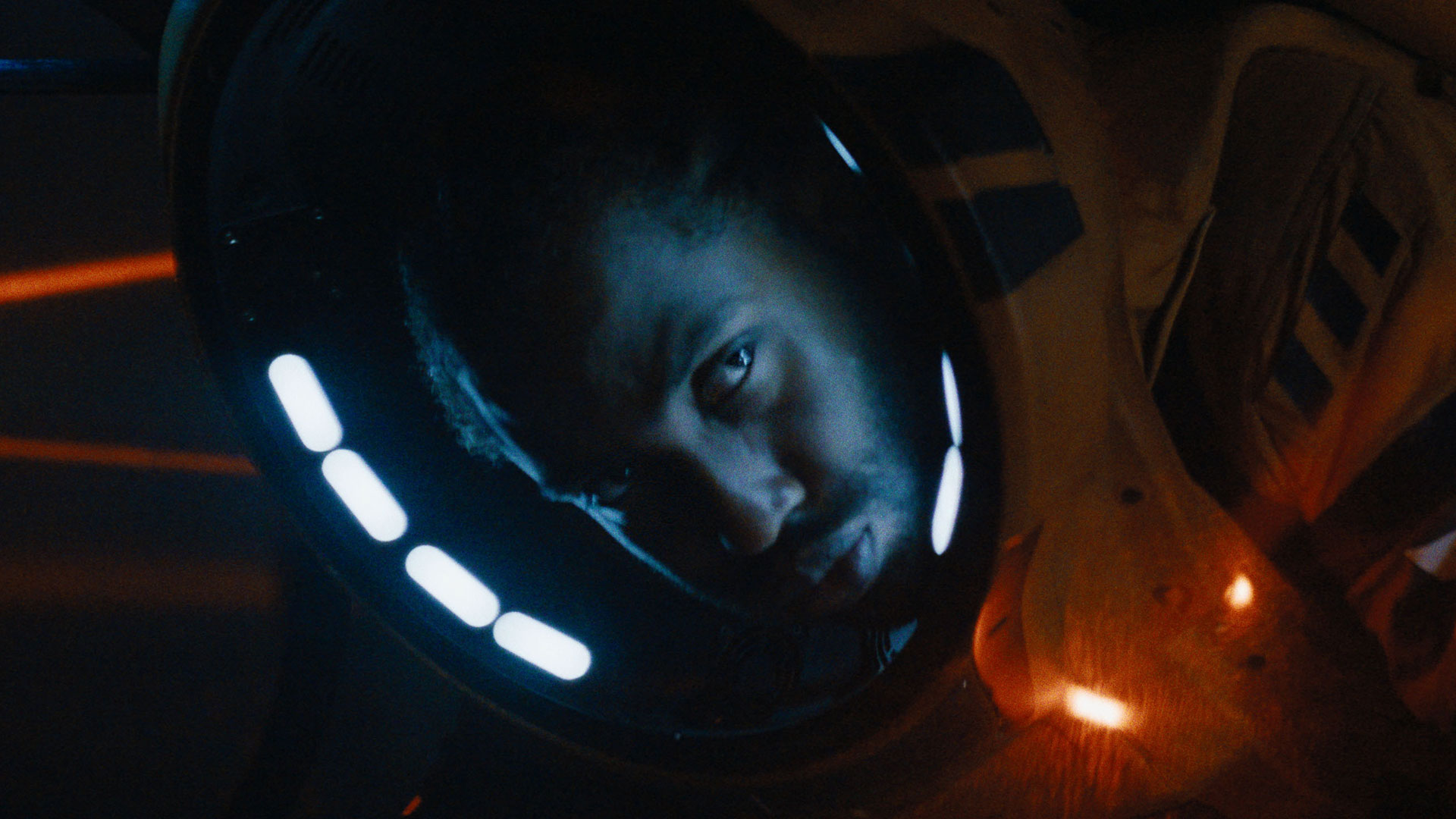
Did you stumble upon stuff and put it in the movie?
There are all these random details that are just already there, that you would never be able to create. For instance, there’s a shot in the movie where I was just filming out the window of the car as we were travelling - suddenly there’s this guy carrying massive bags of bananas on this moped. And then, in post-production, we turned him into a robot. You sort of wonder: 'Who is that person? What are they doing' But, if you really went to somewhere in the future, you would see so much stuff like that. When you came back, people would say: ‘Who’s that person? What are they doing? What’s that building over there?’ And you’d be going, ‘I don’t know. I didn’t ask. Your guess is as good as mine.’
Not many films do that. Especially event movies. Every element is planned, there for a reason…
When you watch a science-fiction film and everything is really obvious in what it is, it’s not as interesting. Films like Blade Runner and Star Wars, I think what makes them stand the test of time is that there are so many visual moments where you just don’t understand what the hell that is. Why is there an ostrich in the middle of the street in Blade Runner? There’s no answer, really. But you feel that there is. It creates layers of story that probably aren’t really there.
The Creator opens in cinemas on September 29. For much more on the film, check out the new issue of Total Film when it hits shops and digital newsstands on July 20.
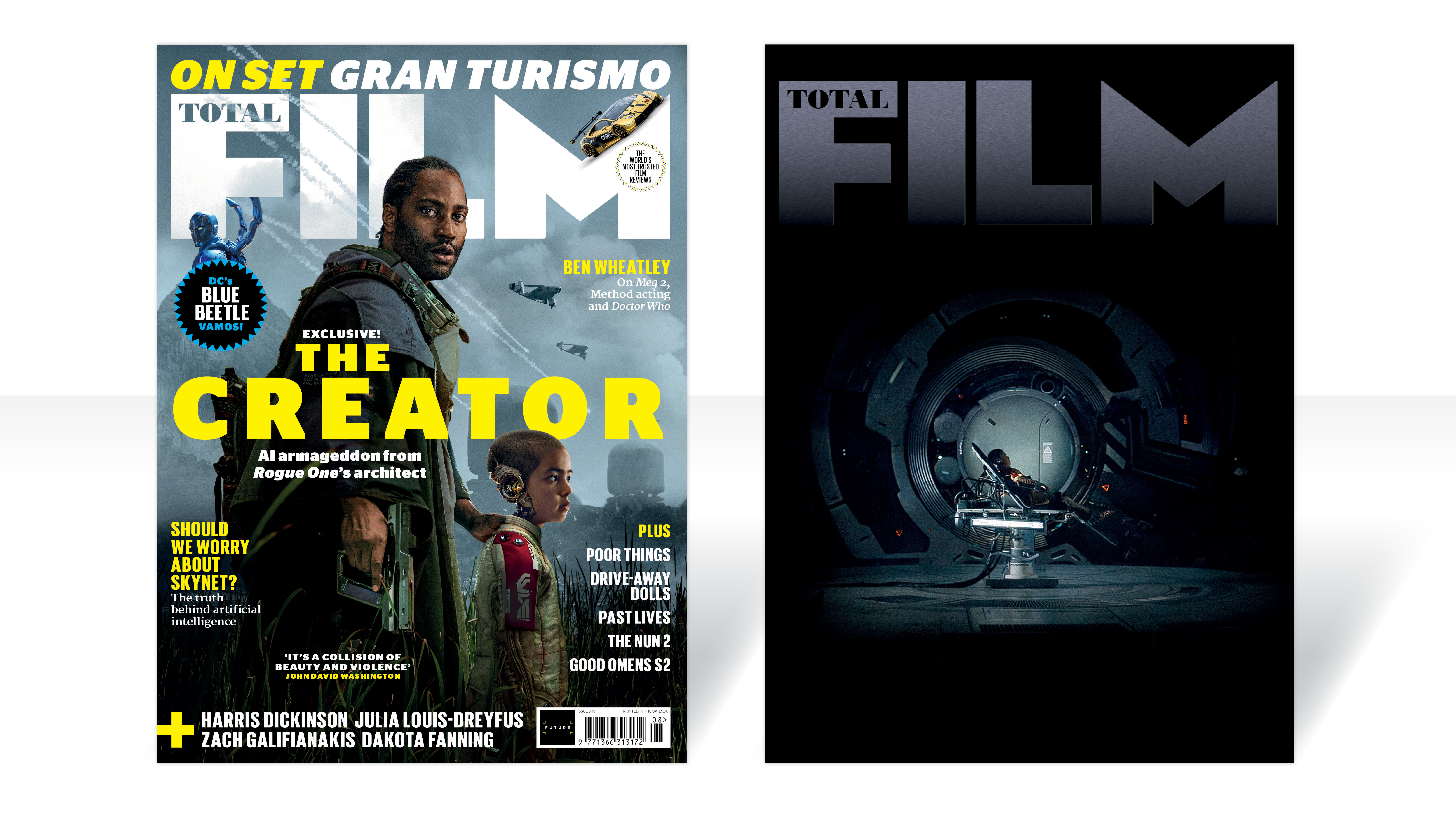
Jamie Graham is the Editor-at-Large of Total Film magazine. You'll likely find them around these parts reviewing the biggest films on the planet and speaking to some of the biggest stars in the business – that's just what Jamie does. Jamie has also written for outlets like SFX and the Sunday Times Culture, and appeared on podcasts exploring the wondrous worlds of occult and horror.


